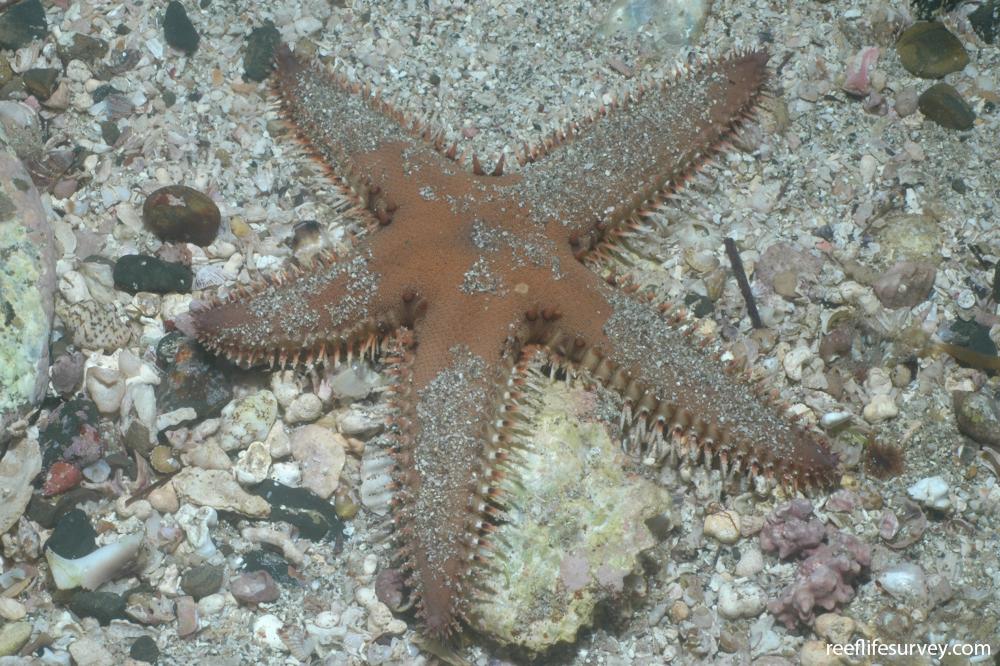Astropecten polyacanthus
Many-spined sand starSame Genus
Distribution
Temperate Australasia, Tropical Indo-Pacific
Description
Dark purple upper surface and deep orange colour below. The superomarginal plates are also distinctive, as they are situated largely along the sides of the arms and therefore appear longer than broad when viewed from above (other local species have the plates largely on top of the arms.) A large spine is also present on the innermost superomarginal plate, with the next one to three plates usually reduced and lacking spines, thereby creating a gap in the series of upward-pointing spines along the arms.
Information
Max Size: 18 cm
Sea Temperature Range: 15.2-27.8°C
Depth: 0-185m
Habitat Generalization Index: N/A
Also referred to as the SGI (Species Generalisation Index), this describes the habitat niche breadth of the species. Species with values less than 15 are found in a relatively narrow range of reef habitat types (specialists), while those over 25 may be found on most hard substrates within their range (generalists). Learn more here.
Conservation and Rarity
IUCN Status: Not Evaluated
Occurrence: Rare (0.3% of sites)
Occurrence describes how often the species is found on surveys within its distribution. It is calculated as the % of reef sites surveyed by RLS divers across all the ecoregions in which the species has been observed
Abundance: Solitary (1 per transect)
Abundance is calculated as the average number of individuals recorded per RLS transect, where present.
Edit by: GJ Edgar. 2008. Australian Marine Life. New Holland, Sydney








